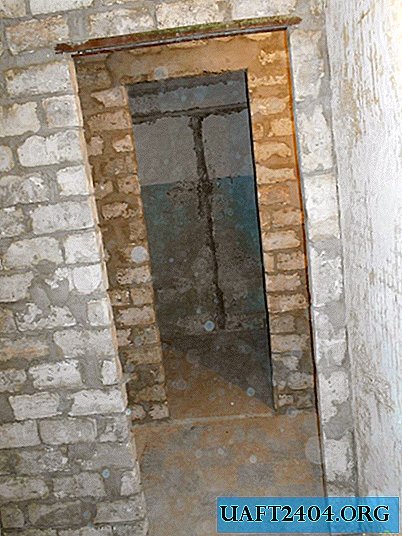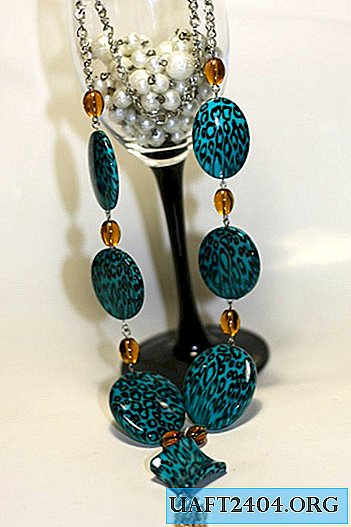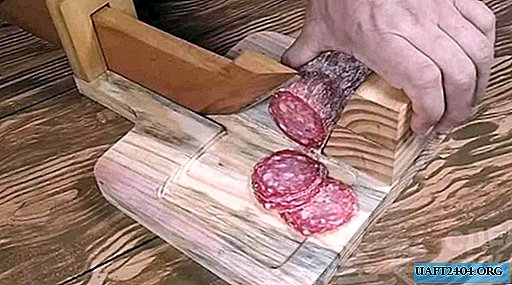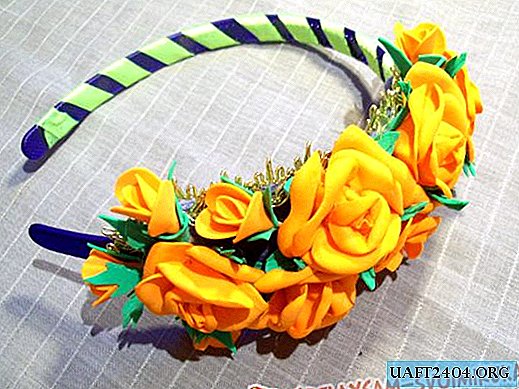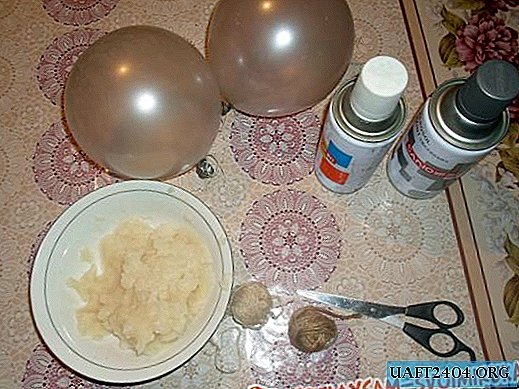Share
Pin
Tweet
Send
Share
Send
For work, I needed the following materials and tools:
- plastic pipe;
- linen cord;
- corrugated cardboard;
- black fabric (preferably velvet);
- PVA glue;
- paints;
- putty;
- acrylic lacquer;
- sandpaper "nulevka";
- saw;
- scissors and stationery knife;
- brushes.
We take corrugated cardboard and cut out the base 5 cm (on each side) larger than the size of papyrus.
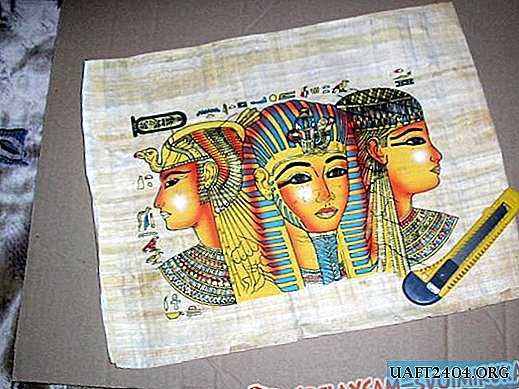
Cut the fabric to the size of the base with an allowance of 3-4 cm in order to grab the edges of the cardboard.

Glue the fabric onto the cardboard and set aside to dry. We saw a plastic pipe in half lengthwise. We measure and cut the segments 5-7 cm more than the base (cardboard).

Now we make linen twine imitations of bamboo knots or so-called ribs. To do this, simply wrap the twine on the pipe in several layers to get a rather high tubercle, about 0.5 cm in height.

This should be done approximately at a distance of 15-20 cm, but do not measure the gaps with a ruler. The uneven distance between the ribs will give our bamboo a natural charm.

Next, putty we primer the pipe, paying special attention to the nodes. If it doesn’t work out very carefully, do not despair, because after drying we will sand it with sandpaper.

After drying and grinding, paint the edges of the bamboo. This should be done as follows: the first stage - paint the bamboo with brown paint, allow to dry, the second stage - highlight the most convex element of the knot with black or dark brown paint.

Then, with lighter paint, cover the entire bamboo and wipe the paint in several places with a dry brush. To varnish. To dry.

In the meantime, we paste our papyrus on the finished passe-partout (cardboard glued with cloth). Again, leave to dry and take up the dried bamboo. Now I’ll call the pipes that way, because they really look like him. We need to make a frame. To do this, take the twine, and cross stick the sticks crosswise. You need to tie it very tight!

Here is our frame.

Using a needle or an awl, we pierce the mat on all sides at the same distance of 0.5 cm. From the edge we thread through the holes of the twine, grasping the frame. The result is like this.

So, with a small investment of finance and time, you can get an exclusive, unique, designer interior item.
Share
Pin
Tweet
Send
Share
Send

